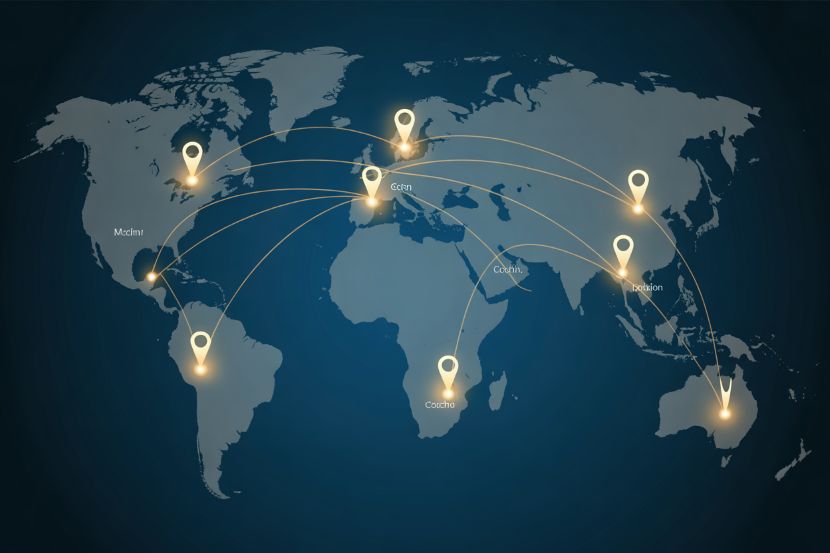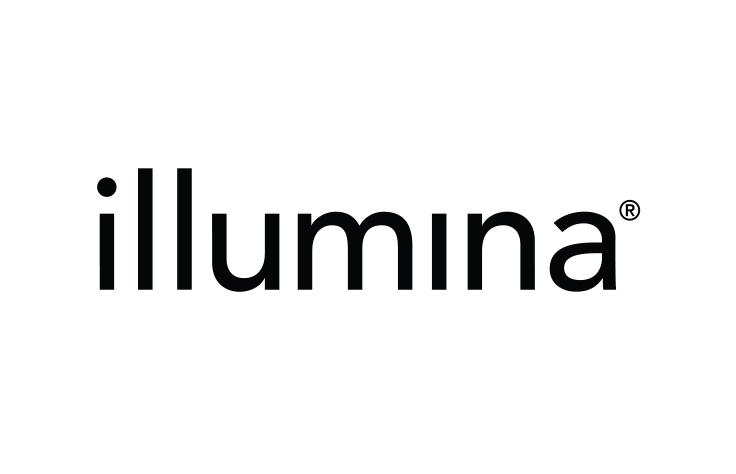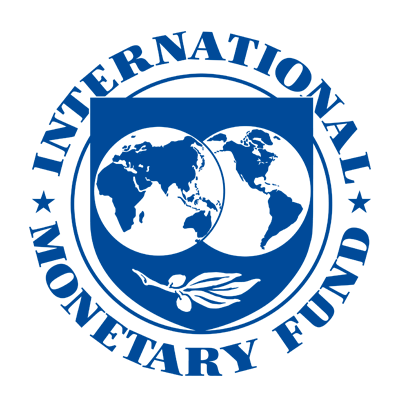Good afternoon.
Thank you, Vadim [Avdeychik] for that kind introduction.
Before I begin, I must – as always – inform you that my remarks today are provided in my official capacity as the Securities and Exchange Commission’s Director of the Division of Investment Management, but do not necessarily reflect the views of the Commission, the Commissioners, or other members of the staff.
I will also point out that, while I will be speaking for about 10 minutes straight, I do have on my hippopotamus cufflinks. If you follow my social media or read my last speech, you know what that means and I hope that, after these prepared remarks, I can do more listening than talking.
That being said, it’s a privilege to be here today to speak with you about a topic that is current and consequential in our regulatory landscape: proxy voting by registered investment advisers.
A Thumbnail History
Many practitioners trace today’s proxy voting practices to the Department of Labor’s 1988 “Avon Letter,” which asserted that “the fiduciary act of managing plan assets that are shares of corporate stock includes the voting of proxies” and that proxy voting determinations by pension plan managers are fiduciary acts that must be made for “the exclusive benefit of plan participants.”
Read on its face, this is not a particularly controversial position. Is anyone really going to say that a fiduciary should not be voting a client’s shares for anything other than the client’s benefit?
However, this common-sense position on conflicts of interest (which was picked up by the SEC and enshrined in our 2003 proxy voting rule) metastasized over time across the regulatory landscape. While it took a few decades, investment adviser proxy voting policies now almost universally reflect the coupled mantras of “votes have value” and “we will vote all proxies.”
This created a lucrative business opportunity for proxy advisory firms. Proxy advisors scaled their product offerings from limited-scope, non-discretionary research to today’s end-to-end proxy voting “solutions,” which not only handle the mechanics of the voting process, but provide substantive “recommendations” on corporate policy matters that can effectively become industry-wide fiats.
This evolution gave rise to a small oligopoly of proxy advisory firms with de facto power to impose their views on social and political matters upon a large portion of the American capital markets. In short, proxy advisors have acquired the ability to influence corporate policy and public company management, without having to buy a single share of stock, and have done so over time under the cover of a fundamental regulatory tenet that votes must be made in the best interest of the client.
And who pays the price for this dysfunctional system? Well, no surprise here, but it is the investor, often the retail American investor, who ultimately pays the price.
In the interests of transparency, I will save you industry veterans the trouble of having to point out that the SEC contributed to this situation. Our past actions, even if undertaken with the best of intentions, may have contributed to investment advisers viewing proxy advisory services as a de facto regulatory safe harbor, as well as the most economically efficient way to operate in a “vote all proxies” environment. We even provided something of a road map through a series of – now-withdrawn – no-action letters that indicated investment advisers could avoid their own conflicts of interest by “outsourcing” their voting duties to proxy advisors,[1] but we did not step in quickly enough when this practice extended – in many cases – to ordinary course voting.
An Opportunity to Reset
But I don’t want to focus on the past this afternoon. Instead, I would like to focus on how we should be empowering investment advisers to reconsider their proxy voting policies and processes.
Unless you were on a desert island for the past year, you have undoubtedly noticed that proxy voting is a focus of the SEC’s overall regulatory agenda. Among other steps:
- Last April, under Acting Chairman Uyeda, our colleagues in the SEC’s Division of Corporation Finance rescinded Staff Legal Bulletin No. 14L and reiterated the Commission’s longstanding view that a public company should look at its specific business circumstances in permitting or excluding shareholder proposals.
- In October, Chairman Atkins called to “de-politicize shareholder meetings” and shift the focus back to director elections and significant corporate matters.
- And in November, CorpFin halted substantive reviews for most exclusions of shareholder proposals, limiting its review of requests for no-action to proposed exclusions based on state law.
But a seismic shift came a few weeks ago, when President Trump issued an executive order[2] addressing the influence that proxy advisors and their related consultancies wield to promote “radical politically-motivated agendas.”
That E.O. directs the SEC Chairman to consider several points, including:
- Whether to require proxy advisors to register with the SEC as investment advisers;
- Whether to require proxy advisors to provide increased transparency on their recommendations, methodology, and conflicts of interest, especially regarding “diversity, equity, and inclusion” and “environmental, social, and governance” factors;
- If and when the common use of a proxy advisor by investment advisers results in the formation of a Section 13(d) group; and
- Examining whether registered investment advisers engaging proxy advisors to advise on (and following the recommendations of such proxy advisors with respect to) non-pecuniary factors (including DEI and ESG factors) is inconsistent with their fiduciary duties.
Obviously, this is a big assignment – stay tuned for how we address it.
Proxy Voting Policies and Processes
With that backdrop, I thought that it might make sense to share my thoughts on the proxy voting landscape. And, again, I will remind you of my opening disclaimer – I am speaking only for myself in my capacity as director here.
I often hear investment advisers say that they feel compelled to vote on matters they do not deem important to their investment programs and that they would welcome more clarity that they need not vote all proxies. Many investment advisers engage a proxy advisor and let the proxy advisor’s recommendations serve as the investment adviser’s default voting instructions. The investment adviser can override the default, to be sure, but we all know how much effort it takes, in any situation, to override a default setting.
It also appears to me that many investment advisers would welcome a broader consensus on the answers to two basic proxy voting questions:
- Must I vote client proxies?
- If I elect to – or am required to – vote, can I (or “must I?”) still use a proxy advisor?
Question 1: Must I Vote Client Proxies?
If you look into this topic, the widespread, but superficial, view is that an adviser must vote client proxies. In fact, in the 2003 adopting release for the SEC’s proxy voting rule, the Commission stated that the fiduciary duty of care requires an adviser “to monitor corporate actions and vote client proxies.”
However, in that same paragraph, the Commission also stated that “We do not suggest that an adviser that fails to vote every proxy would necessarily violate its fiduciary obligations.” The Commission, rather, pointed out that:
There may even be times when refraining from voting a proxy is in the client’s best interest … [such as] where the adviser determines that the cost of voting the proxy exceeds the expected benefit to the client.
The Commission’s June 2019 Fiduciary Interpretation[3] stated the position that an adviser and its client may vary their fiduciary relationship by agreement, “provided that there is full and fair disclosure and informed consent.” In considering how this applies to proxy voting, the Commission went out of its way not to reduce the scope of an adviser’s discretion, simply stating that the release “does not address the specifics of how an investment adviser might satisfy its fiduciary duty when voting proxies.”
But, two months later, the Commission issued guidance on proxy voting considerations, stating that:
the client and the investment adviser may instead agree [that] … the investment adviser would only assume the authority to vote on behalf of the client in limited circumstances or not at all.
The Commission then provided two pages of examples of permissible arrangements to limit or eliminate an adviser’s obligation to vote proxies.
Not voting makes sense in many situations. Look, for example, at quantitative and systematic managers, who often operate models that merely seek exposures to identified sources of alpha. Many investment advisers managing quantitative and systematic strategies will even say that voting on board members, management policies, or on precatory social and political matters is irrelevant to their strategy and imposes costs without conferring any measurable benefit to investors. Yet many systematic managers continue to vote proxies (often using a proxy advisor’s default settings) because it is perceived as being “safer” than not voting.
Index funds present an interesting situation. Many mutual funds and ETFs purport to track a reference index, and the core mandate for the investment adviser is to replicate the performance of the reference index in the fund. No more, no less. But many index funds, like some systematic funds, vote proxies, notwithstanding their passive investment mandate. I suspect that some (perhaps many) of these investment advisers vote proxies – often according to some formula created by or in conjunction with a proxy advisor – because they feel pressured or obliged to do so. But it may be appropriate for these categories of investment advisers (and the Boards that exercise oversight over this function) to consider whether taking positions on fundamental corporate matters, or on precatory proposals, is consistent with their investment mandates.
But I do not want to leave you with the impression that I think that voting is not important. Because, for the overwhelming number of investment advisers, it is.
Fundamental managers can and generally should be voting on fundamental corporate matters. It would be unusual, absent a conflict of interest, for an activist, a private equity, or a venture fund manager not to vote on matters involving a portfolio company. I would think that traditional fundamental managers are in the same boat, at least for their core positions.
And investment advisers to passive or systematic strategies may deem some kind of neutral (or neutral-ish) voting policy to be essential for quorum and similar reasons.
So, there is no stock answer to the “Must I vote?” question… Instead, it is important that advisers and clients have a fair amount of latitude to decide what works in their individual cases.
Question 2: How Must I Vote?
This is an easy one to answer, at least at a certain level of abstraction: An adviser is a fiduciary and should cast ballots in the client’s best interests, on an informed basis.
In terms of how to get there in the real world, questions on how much of the deliberative process can be outsourced to proxy advisors are frequently raised. That’s a good question to ask, but one that, in my experience, winds up being situationally dependent. So, as a general principle, I think that we regulators should let advisers and clients have the first crack at deciding that.
Because when we do—when we step out of the way of market participants—innovation flourishes. Take, for example, those fund managers—including index fund managers—who right now are spearheading programs that enable their investors to express their voting preferences and direct their proportionate share of voting power. This is exactly the type of innovation we don’t want to inadvertently slow down: so long, of course, as they offer investors a sufficient number of options, accompanied by clear disclosure as to how shares would be voted under those options.
And let me be clear: there is nothing inherently wrong with an investment adviser using a proxy advisor. When operating pursuant to specific instructions within a tailored mandate and subject to periodic review, a proxy advisor can provide valuable research, analysis, and logistical support to an investment adviser.
But shouldn’t clients and investors be concerned when an investment adviser’s track record on non-routine matters is nearly identical to a proxy advisor’s standard voting policies and positions? In such a case, are clients and investors benefitting from the investment adviser’s expertise? And are the votes cast in the best interest of clients? Again, the answers will differ in each individual situation, but this is a topic that might be worth a review.
And if we are raising issues for consideration, I will also mention, because the President did, that there is real concern out there that habitual adherence to a proxy consultant’s recommendations could pull an adviser into a Section 13(d) group.
So Where Do We Go From Here?
“Here” is pretty clearly an unsatisfying locale.
“Here” is a place where retail and institutional investors are directly and indirectly supporting a system where an oligopoly of proxy advisors exercise influence over voting decisions for a large portion of the investment management industry. What happens “here” contributes to the de facto imposition of external political and social ideologies on US-listed public companies through the proxy voting process.
But we do not have to stay “here.”
Proxy voting should not be a rote box-checking exercise. It is a discretionary act within a relationship of trust that can influence corporate behavior, shareholder value, and client outcomes. A fund manager should be free to ask itself tough questions and to act in accordance with the honest answers.
Investment advisers that determine proxy voting is not required by, or may even be inconsistent with, their investment program should not be afraid to take that position. Assuming that such a determination is consistent with all relevant client agreements and is effectively disclosed to investors – and, of course, otherwise satisfies the adviser’s fiduciary duties of care and loyalty – I would find it hard to second-guess the adviser and the client.
Investment advisers that do vote, on the other hand, should be empowered to utilize their best judgment and whatever resources they deem appropriate under the circumstances when making that vote. At the same time, to the extent that the underlying investment mandate seeks passive exposure, those advisers should (re)confirm that they are comfortable with their authority to vote, both as a general matter and, in particular, when a vote reflects an investment adviser’s or a proxy advisor’s personal view or opinion on a social or political matter.
And in assessing proposed votes, investment advisers might utilize the Fiduciary Interpretation’s concept of a “reasonable inquiry into the client’s objectives.” If an investment adviser routinely follows a proxy advisor’s stock recommendations without a tailored engagement or independent analysis, is this “reasonable inquiry?” Maybe, but it is certainly worth thinking about. And, to go back to the first question, if the voting process is so burdensome that it requires extensive external resources, why is the adviser voting at all?
Is AI the (AN) Answer?
Finally, I want to insert a plug for artificial intelligence.
As advisers grapple with the scale and complexity of proxy voting—especially across large portfolios—AI tools like large language models and agentic AI, offer a compelling opportunity.
Imagine an AI agent that can review dozens or hundreds of proxy statements, assess them against your expressed values, and efficiently generate a large quantity of principled voting recommendations. And, pretty much, for free. This isn’t science fiction—it’s a near-term reality.
Of course, with great power comes great responsibility. AI agents need to be trained and their output needs to be reviewed. Any adviser’s use of AI in proxy voting would also need to take into consideration principles of transparency, auditability, and consistency with fiduciary duties.
But done right, AI can be a valuable tool that enhances—not replaces—human judgment, and that helps advisers better serve their clients.
In Conclusion
In conclusion, if you are an adviser and you and your clients are content with your tailored proxy voting arrangements, great. I am not here to force you to change your approach.
But if you are dissatisfied with your current proxy voting arrangements, or if you have not reconsidered them in a while, this is a great time to re-evaluate and reassess – and perhaps to redirect.
And to the extent that you find that Division or Commission action would be helpful, please give us a call or come in for a chat. And if you want to chat on the matters flagged in the President’s Executive Order, we are all ears.
Thank you for your time, and thank you for your continued commitment to serving investors with excellence and accountability.






